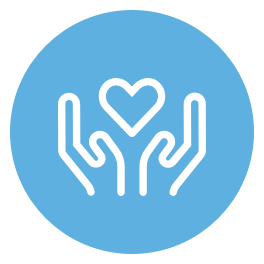Research
The Rochester Victory Alliance was one of the first research sites in the U.S. to conduct HIV vaccine studies. Our long-term experience has allowed us to offer guidance to other international HIV studies. We work with sites around the world.
Our Commitment
The University of Rochester’s HIV Vaccine Trials Unit, also known as Rochester Victory Alliance, is a committed group of experienced professionals passionate about developing an HIV vaccine. Learn more about our current studies.
Nearly 3000 Rochester-area residents have volunteered in our studies to date. Our team is committed to providing the highest quality care to our participants.
We work closely with the Rochester community to inform and educate on issues of HIV prevention, clinical research, and vaccine science. We participate in community events in partnership with a number of local and national organizations dedicated to treating and preventing HIV (see our listing of related resources).

Part of a Global Mission
Rochester Victory Alliance is a member of the HIV Vaccine Trials Network (HVTN). HVTN is an international collaboration of scientists and educators searching for an effective and safe HIV vaccine. The HVTN’s mission is to facilitate the process of testing preventive vaccines against HIV/AIDS. We are one of 21 HVTN sites across the US.
In the past 25 years, more than 30,000 HIV negative volunteers have taken part in HIV vaccine studies worldwide. A person cannot get HIV from the HIV vaccines used in the study. This is simply because the vaccines do not contain actual HIV. Millions around the world still suffer and the fight is far from over.
The HVTN was pivotal in the development of COVID-19 vaccines and treatments as well, through a new consortium: the COVID-19 Prevention Network (CoVPN). The CoVPN continues to be engaged in both expanding the array of effective treatments for this new viral disease, and in optimizing the vaccines to prevent it, all as quickly as possible.
How Vaccines Work
The world of disease prevention has come a long way since Edward Jenner first inoculated a young boy against smallpox in 1796. We now know that the immune system can be induced to build proteins, known as antibodies, that protect us against infectious viruses and bacteria. This process is known as vaccination. Thanks to vaccination, more than a dozen diseases can now be prevented, including hepatitis A and B, polio, measles, HPV, and more.
Vaccines can be made in a variety of ways. In the case of HIV vaccines, no living or killed virus, or any piece of actual virus, is used. Instead, researchers create replicas of portions of the virus in a laboratory. These synthetic vaccines trick the immune system into thinking it is seeing the actual virus, when it is really just seeing a cleverly disguised protein. Many of the research vaccines focus on a protein “spike” found on the HIV virus. No matter which portion of the virus is recreated, it is impossible for a study vaccine to cause an HIV infection.
Voluntary Participation
Vaccine volunteers are just that — people who enroll voluntarily. All volunteers go through an Informed Consent process. Volunteers are advised of the required visits to the clinic and are educated in advance about the study. Volunteers are welcome to ask questions at any time.
